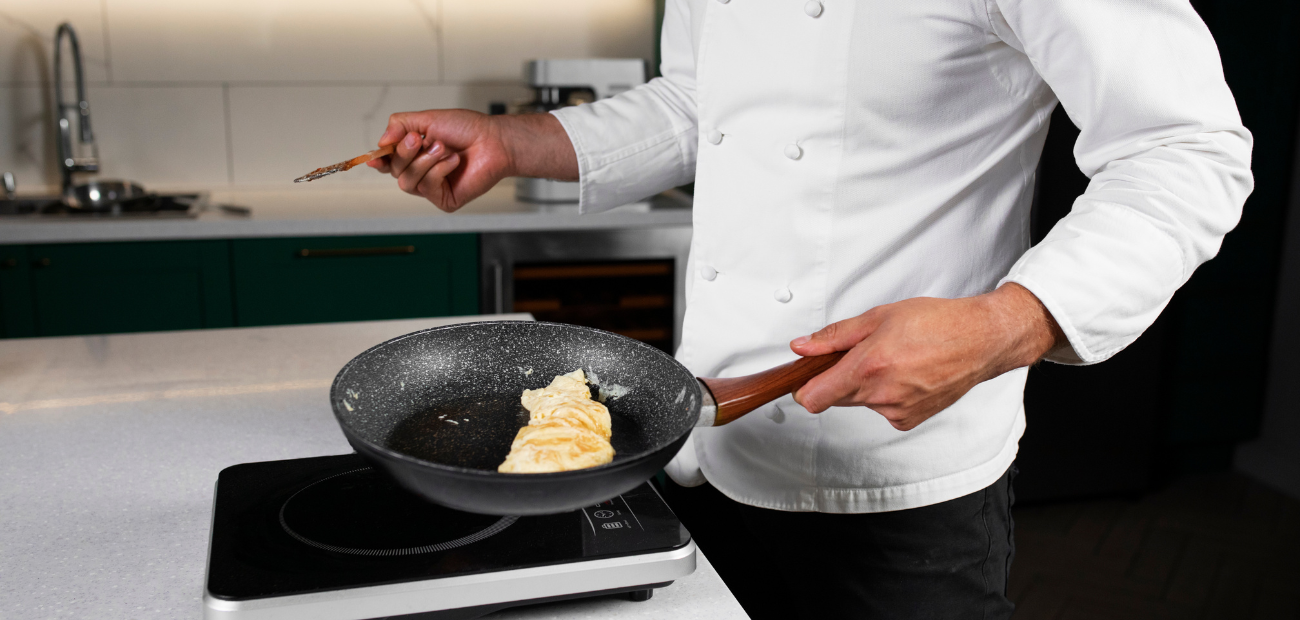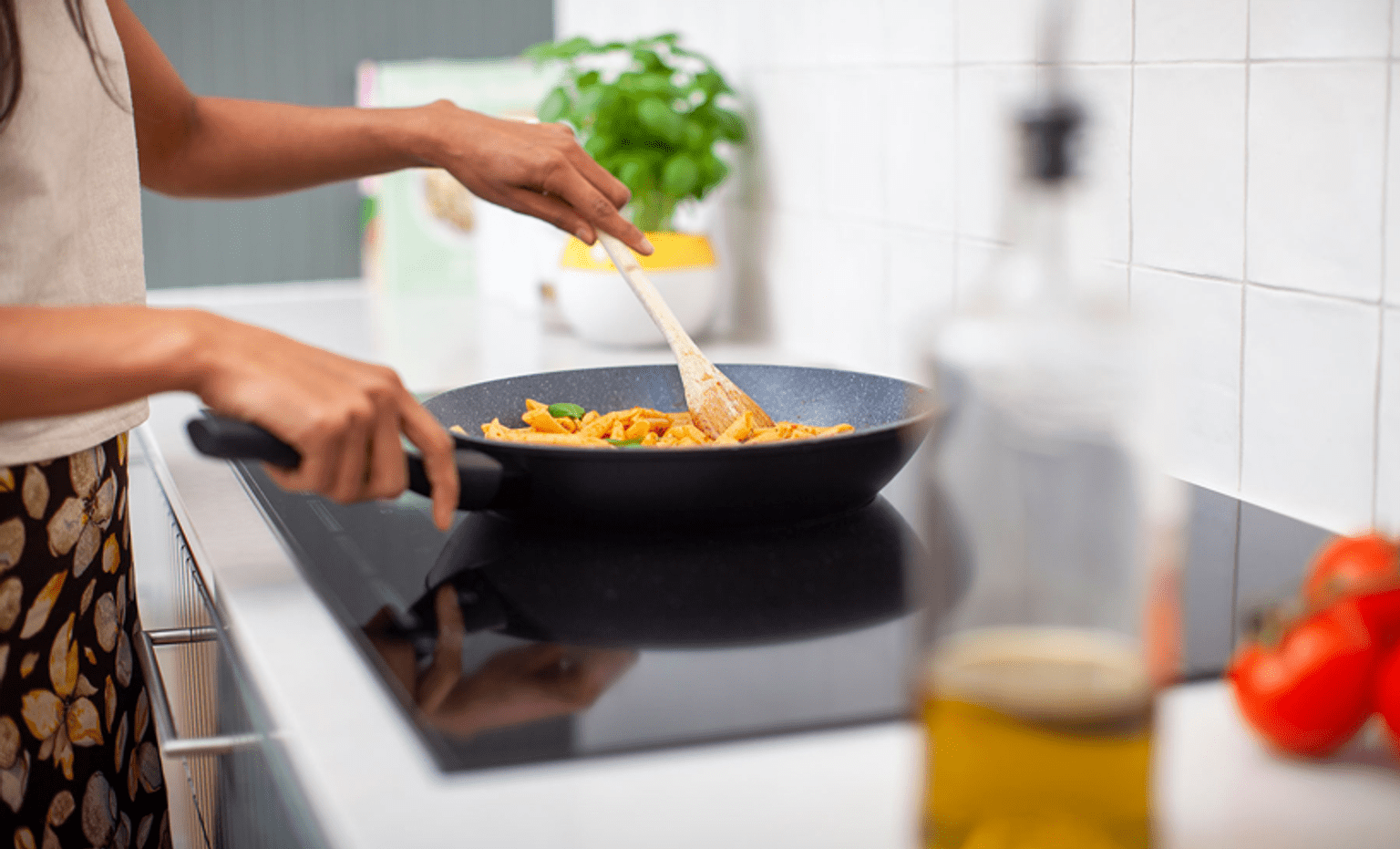Cast Iron Seasoning Flaking After Induction Cooking?
Written By James Morgan
For barbecue enthusiasts, nothing quite compares to the joy of cooking on a well-seasoned cast iron skillet. However, when the beloved cast iron seasoning starts flaking after induction cooking, it can be both perplexing and frustrating. This article delves into the reasons behind this phenomenon and provides actionable steps to prevent it, ensuring your cast iron remains in top shape for many grilling sessions to come.

Understanding Cast Iron Seasoning
Before we address the issue of flaking, it's crucial to understand what cast iron seasoning is. Seasoning is the process of applying a thin layer of oil to the surface of the cookware and heating it until it polymerizes, creating a natural, non-stick coating. This layer of seasoning not only enhances the cooking experience but also protects the cast iron from rust.
Why Does Cast Iron Seasoning Flake?
Induction cooking is renowned for its efficiency and speed, but it can also pose challenges for cast iron cookware. The rapid heating and cooling cycles can stress the seasoning layer, leading to flaking. Additionally, uneven heat distribution, which is common in cast iron, can exacerbate the problem. When the seasoning layer is not evenly bonded to the iron, sections may lift or flake off.
Another factor is the type of oil used for seasoning. Oils with a low smoke point, like olive oil, may not form a stable layer, especially under the intense heat of induction cooking.
Preventing Seasoning Flaking on Induction
To prevent cast iron seasoning flaking after induction use, consider these tips:
1. Choose the Right Oil
Use oils with a high smoke point, such as flaxseed oil or grapeseed oil, for seasoning. These oils polymerize more effectively, forming a tougher, more resilient coating.
2. Gradual Temperature Changes
Avoid sudden temperature shifts. Preheat your cast iron slowly on a low setting before turning up the heat. Similarly, allow it to cool gradually after cooking.
For more insights on maintaining your cast iron cookware, check out this cast iron guide.
3. Re-season Regularly
Regular re-seasoning can help maintain the integrity of the seasoning layer. After each use, clean your skillet with hot water, dry it thoroughly, and apply a thin coat of oil before storing.
Induction Cooking and Cast Iron: A Symbiotic Relationship
Despite the challenges, cast iron and induction cooking can coexist harmoniously. The key lies in understanding how to manage the heat and care for the cookware properly. When done right, the combination of cast iron's heat retention and induction's precision can elevate your barbecue game to new heights.
For those curious about the nuances of using cast iron on induction, this article on searing meat provides valuable insights.
Common Myths About Cast Iron and Induction
There are several myths surrounding the use of cast iron on induction cooktops. One common misconception is that induction cooking is inherently bad for cast iron. However, with proper care and technique, cast iron can thrive on induction.
Myth 1: Induction Ruins Cast Iron
Induction cooking does not inherently ruin cast iron. Flaking is often due to improper seasoning or abrupt temperature changes, not the induction cooktop itself.
Myth 2: Only New Cast Iron Works on Induction
Both new and old cast iron can work well on induction cooktops as long as they are properly seasoned and maintained. Learn more about induction compatibility from Le Creuset's guide.
Myth 3: Seasoning Is Permanent
Seasoning is not a one-time process but requires regular upkeep. Over time, the seasoning can wear off, especially with frequent use on induction. Regular maintenance is key to keeping the seasoning intact.
Conclusion
Barbecue enthusiasts know that the right tools can make all the difference. While cast iron seasoning flaking after induction use can be a challenge, understanding the science behind seasoning and applying proper care techniques can mitigate these issues. Embrace the art of seasoning and enjoy the robust flavors that only cast iron can deliver.
For further reading on induction cooking, visit Wikipedia's page on induction cooking.

FAQ Section
Why does cast iron seasoning flake after induction cooking?
The rapid heating and cooling of induction cooking can cause stress on the seasoning, leading to flaking.
What oils are best for seasoning cast iron?
Oils with a high smoke point, like flaxseed or grapeseed oil, are ideal for seasoning cast iron.
How can I prevent my cast iron from flaking?
Gradual temperature changes, regular re-seasoning, and choosing the right oil can help prevent flaking.



